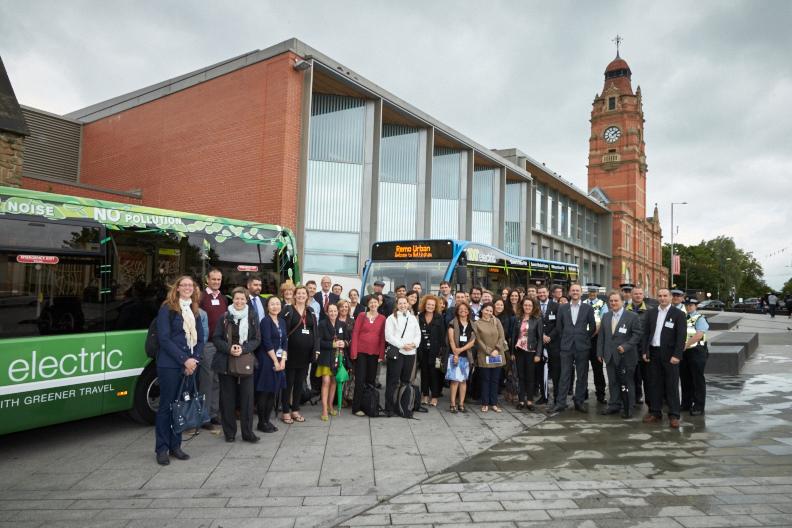Transforming our economy and environment with urban regeneration
youris.com EEIG

The will of cities and regions around Europe and the world to take control of our carbon emissions has been a welcome headline story in 2015
Considerable commitments and challenges lie ahead for a new generation of urban leadership attempting to embrace the opportunities of a sustainable, healthy and prosperous twenty-first century and enact the solutions to achieve it.
REMOURBAN is five cities in five countries with the same drive to integrate infrastructure and future-proof their urban spaces against a backdrop of environmental challenges that go well beyond their municipal boundaries – and the project held its first periodic meeting, 8-10 June in Nottingham, UK to focus on the numerous project tasks and deliverables designed to achieve this.
Speaking at the opening session, David Bishop of lighthouse city Nottingham City Council stated “We are striving to transform our economy within the framework of urban regeneration and sharing that with our citizens and communities”. A vision the partners and experts of the project could immediately relate to. Welcoming the international group to one of the most sustainable university campuses in the world, Vice Chancellor of project partner and meeting host Nottingham Trent University, Prof Edward Peck, went on to underline “collaboration is how we learn, it is essential to how cities get smart …and stay smarter”.
Sharing insight into Nottingham’s energy and sustainability priorities, Councillor Alan Clark, outlined some of the ways the city is seeking to transform buildings, homes and infrastructure to be more energy efficient. Not just a technical challenge he said, but one of “creating jobs in an extending and innovative environmental sector; saving people money with cheaper energy and better insulation; creating healthier, more comfortable living environment”.
With a mandate to develop, validate and guarantee the replicability of a sustainable urban regeneration model, the project teams were understandably enthused by Nottingham’s blueprint and ready to focus on intensive discussion of the work programme and deliverables. Specific sessions focused on replicability models, evaluation framework, a characterization approach to European cities prime to benefit from Remourban solutions, exploitable services and products and a local, citizen-centric approach to effective communications.
REMOURBAN’s aims to reduce the impact of the daily activities of citizens and communities were a constant focus during the meeting and are expressed by the following major indicators and each level
- District: 34% energy reduction and 50% CO2 reduction
- Mobility: 5% energy and CO2 emissions reduction
- City-wide: 5% reduction in CO2 and energy consumption per person per year
Beyond these, the project hopes to engage and inspire a wide range of stakeholders, cities and citizens that we can achieve cuts in green house emissions accompanied by substantial increases in renewable energy and energy efficiency in a collaborative and collective way.
“Avoiding the +2°C scenario is not possible with our current building stock and behaviours” said Miguel Angel Garcia of the coordinating team at CARTIF technology center. “We need bankable and replicable solutions supported by credible and reliable evaluation to ensure Remourban cities and many more beyond can make ‘smart’ a reality. Our meeting in Nottingham allowed us to move a considerable amount of work forward to cap a full-speed first year for the project at the end of 2015.”
Follow the further progress and tangible initiatives in urban regeneration model in the energy, mobility and ICT sectors from the project online and on Twitter.



